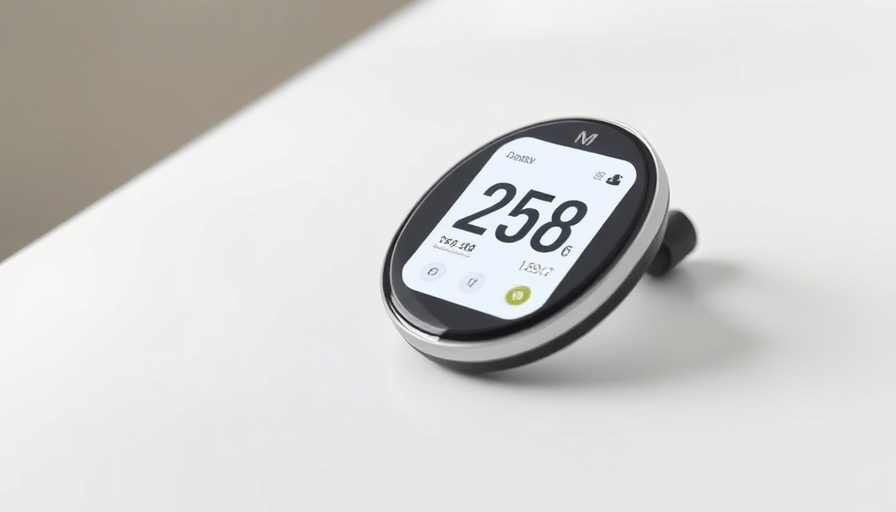
Increased Diabetes Risk Among Childhood Cancer Survivors
Childhood cancer survivors experience elevated risks for serious chronic conditions, including diabetes, due to the treatments they undergo during their fight against cancer. Recent research led by Dr. Yue Liao at the University of Texas at Arlington highlights how digital health monitoring can play a crucial role in intervening early to reduce these risks. With advancements in technology, wearable devices promise to revolutionize the healthcare landscape for these survivors.
How Digital Health Tools Can Transform Monitoring
The core of this research emphasizes the significance of wearable sensors that can continuously track various health metrics, such as glucose levels, vital signs, and even mood variations over time. These 24/7 monitoring capabilities provide insights that traditional one-time clinical visits simply cannot offer. Dr. Liao's review, published in the journal Cancer, discusses how integrating real-time data from these devices can lead to better risk assessments for kids who had cancer. By analyzing daily fluctuations in health data, caregivers can detect early signs of diabetes and design more effective prevention strategies tailored to individual needs.
Redefining Health Strategies for a New Generation
Unlike adults, childhood cancer survivors face unique challenges due to their youth and longer life expectancy. Their survivorship trajectory requires a different approach to intervention planning. Dr. Liao notes that younger patients might be more amenable to digital health platforms, especially those that align with existing technologies they are familiar with, such as smartphones or tablets. This compatibility suggests potential for higher engagement rates among survivors, making modern health interventions more feasible and effective.
The Importance of Early Detection
As Dr. Liao points out, the landscape of health data is rapidly evolving. There is a wealth of health-related information generated by various digital tools, waiting to be harnessed for improving health promotion and disease prevention strategies. By responsibly utilizing this data, healthcare professionals can establish timely interventions, ensuring a brighter future for childhood cancer survivors.
Creating a Healthier Tomorrow
With the fight against childhood cancer far from over, it is essential to focus not only on survival but also on the overall health of these young individuals in the long run. Understanding the interplay between cancer treatments and the risk of subsequent chronic diseases like diabetes is critical. Digital health monitoring is one way to bridge this gap, providing tailored strategies to improve the quality of life for survivors as they grow into adulthood.
This innovative approach signifies a shift in how we view survivorship. Children's health post-cancer treatment isn't just about quantitative measures of survival but qualitative factors that ensure they lead healthier, longer lives.
 Add Row
Add Row  Add
Add 




Write A Comment